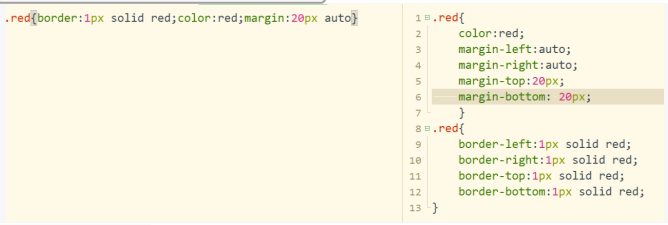In essence, webpack is a static module bundler for modern JavaScript applications.
When webpack processes an application, it recursively builds a dependency graph that contains each module required by the application, and then packages all these modules into one or more bundle s.
install
md mypack //New folder cd mypack // Enter your project directory mypack directory, and you can create it yourself npm init // Initializing the project folder creates a package js //Local installation npm install --save-dev webpack npm install --save-dev webpack-cli
prepare documents
-- dist File generation directory
---- index.html
-- index.js Main entry file
-- header.js Need to be index Imported files
# index.html
<!DOCTYPE html>
<html lang="cn">
<head>
<meta charset="UTF-8">
<title>first webpack page</title>
</head>
<body>
<script src="main.js"></script>
</body>
</html>
<!--Packed js The default name is main.js-->
# index.js
import {header} from './header.js'
document.body.append(header);
# header.js
var header =document.createElement("div");
header.innerHTML="Hello webpack from header";
export {header};Use profile
Create a new webpack in the project directory config. JS webpack default configuration file
const path = require('path')
// The path module of node is introduced
module.exports={
entry:'./index.js',
// Specify the entry of the file
output:{
filename:'main.js',
// Define file name
path:path.resolve(__dirname,'dist')
// Define folder
// __ dirname get current directory
// path. The resolve method resolves a sequence of paths or path fragments into absolute paths
}
// Specify the packaged exit
}
// module. The meaning of export module in export node
# The following is the pure version
const path = require('path')
module.exports={
entry:'./index.js',
output:{
filename:'main.js',
path:__dirname+'/dist',
}
}Core concepts: entry, output, mode mode, loader loader, plugins plug-in
output:
{
path:__dirname+"/dist",
filename:"main.js"
}mode:
mode: "development", //Development mode mode: "production", //Product model
Loader loader:
Definition: let webpack have the ability to handle non js files
Style loader: insert css into style tag, css loader: load css
Installation:
npm i style-loader css-loader -D
Profile:
// modular
module:{
// rule
rules:[
{
//Testing End of css file
test:/\.css$/,
// Using two loader loaders
use:["style-loader","css-loader"],
}
]
}plugins plug-in:
Definition: additional operations during external webpack processing, such as loading templates, compression, server, etc....
1,html-webpack-plugin:
Load the html template file into the dist directory and insert the packaged js
Installation:
npm i html-webpack-plugin
to configure:
const htmlWebpackPlugin = require("html-webpack-plugin")
plugins:[
new htmlWebpackPlugin({
template:"./public/index.html"
})
]2. File loader: loading files
URL loader: Based on file loader # if the file is small, convert it to base64 format to reduce the number of http requests
Installation:
npm i file-loader url-loader -D
3. Clean webpack plugin: clean up the dist directory
Installation:
npm i clean-webpack-plugin -D
4. Optimize css assets webpack plugin: optimize css plug-ins
Installation:
npm i optimize-css-assets-webpack-plug -D
Import:
const optimizeCss = require('optimize-css-assets-webpack-plugin')use:
// Optimization options
optimization: {
// compress
minimizer: [ new optimizeCss()],
}, 
5. mini-css-extract-plugin: extract css files into a single file css file
Installation:
npm i mini-css-extract-plugin -D
Import:
const miniCssExtractPlugin=require('mini-css-extract-plugin')Using loader:
use:[miniCssExtractPlugin.loader,"css-loader"],
Using plug-ins:
new miniCssExtractPlugin({
filename:"style-[hash:7].css"
})6. Optimize css assets webpack plugin: css optimization
Terser webpack plugin: js compression optimization
Installation:
npm i optimize-css-assets-webpack-plugin -D npm i terser-webpack-plugin -D
Import:
// Using css optimization plug-ins
const optimizeCss = require('optimize-css-assets-webpack-plugin')
// Extract css as a single file
const miniCssExtractPlugin=require('mini-css-extract-plugin')
// Import js compression plug-in
const TerserPlugin = require("terser-webpack-plugin");use:
// Optimization options
optimization: {
// compress
minimize: true,
// Specify compressor
minimizer: [
new optimizeCss(),
new TerserPlugin()
],
}, Local server
Function: start a server locally
Installation:
npm i webpack-dev-server
to configure:
devServer:{
open:true,//Open browser automatically
hot:true,//Hot renewal
host:"localhost",//Local domain name
port:8080,//Port number
proxy:{}//Same as Vue config. Agent configuration in JS
}package.json
script "serve":"webpack server",
Start command:
npm run serve
webpack optimization
1. Hash hash:
If the content is the same, the file name is the same. If the browser has requested the same name, the browser's second request will be fetched from the cache
hash # package changes to calculate a paragraph of characters
contentHash , calculate a character according to the change of content
chunkHash calculates a string according to the entry file
2. Compression:
Compress css: optimize css assets webpack plug
Compression js: terser webpack plugin
3. Split:
Large file split:
optimization: {
// Code segmentation
splitChunks: {
chunks: "all",
},
}
filename:'[name]-[hash:7].js'4,soureMap:
Source code correspondence (error)
devtool:'eval-cheap-source-map',
5. Tree shake function
Function: useless modules are not imported
optimization: {
usedExports: true,
}
//package. Which JSON configuration files are not shaken out
"sideEffects":["@babel/polly-fill","*.css"],6. Asynchronous loading
pic.onclick = function(){
import(/* webpackChunkName:"jquery", webpackPrefetch: true*/"jquery")
.then(({default:$})=>{
// After jq is loaded, click red to display its text
$(".red").click(function(){
alert($(this).text())
})
})
}7. Preload prefetch
import(/* webpackChunkName:"jquery", webpackPrefetch: true*/"jquery")
webpack magic note:
/ * webpackChunkName:"jquery" * / the packaged name of the imported file
/ * webpackPrefetch: true * / download the file in advance when the network is free
8. Import on demand
@Babel / plugin syntax dynamic importvue and element UI need to be downloaded on demand
To configure babelrc plugins:
{
"presets": ["@babel/preset-env","@babel/preset-react"],
"plugins":["@babel/plugin-syntax-dynamic-import"]
}Multi entry packaging
1. Configure the entrance
entry:{
"vue":"./src/main.js",
"base":"./src/index.js"
},2. Configure HTML webpack plugin
new htmlWebpackPlugin({
// Specify template address
template:"./public/index.html",
// Which entry files generate js to insert into the current template
chunks:["vue"],
// Title parameter passed in template
title: 'vue-webpack',
// Package generated file name
filename: 'index.html'
}),
new htmlWebpackPlugin({
// Specify template address
template:"./public/base.html",
chunks:["base"],
title: 'Basics webpack',
filename: 'base.html'
}),